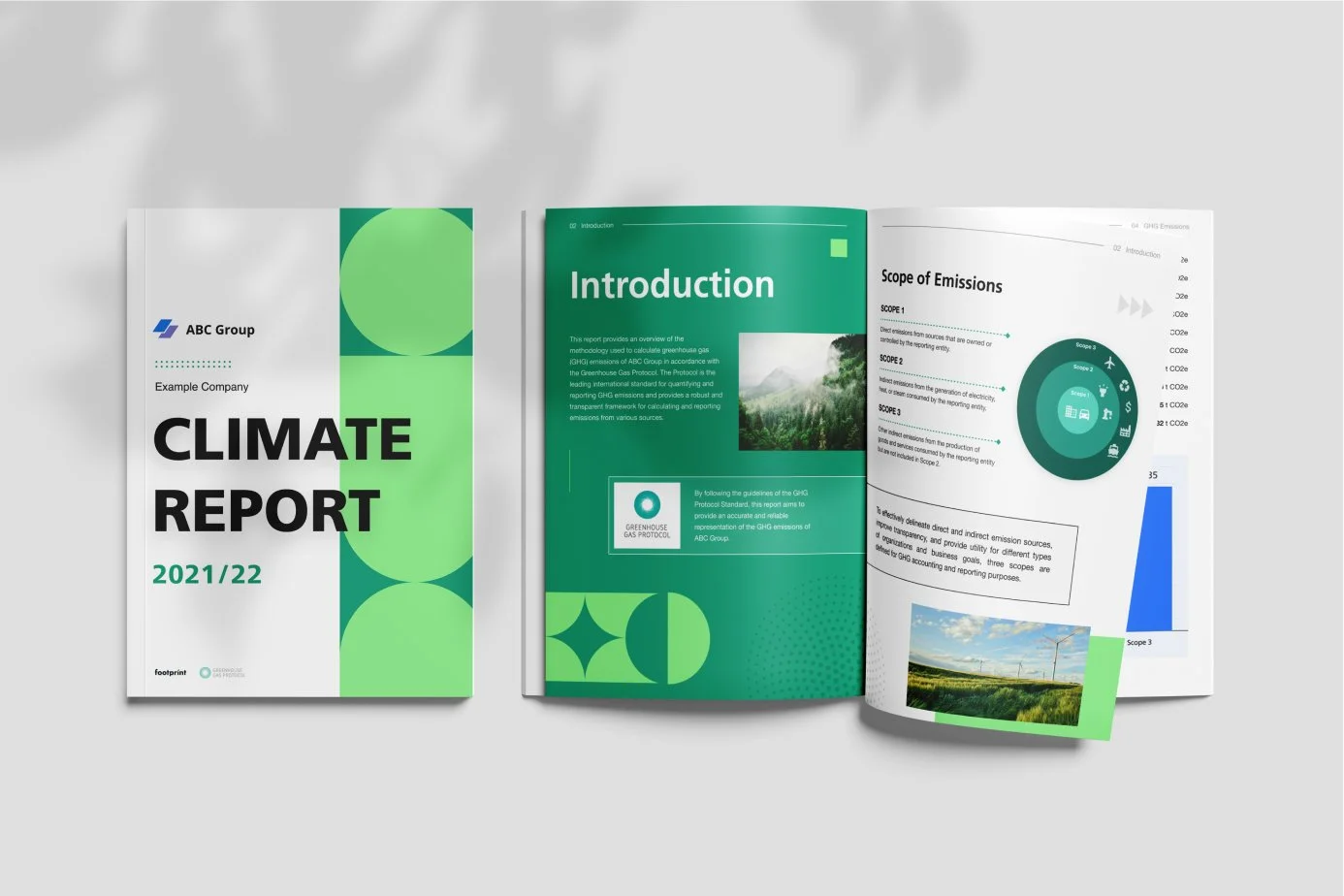Doris Wagner: Transforming Sustainability in the Event Sector
The event industry occupies a unique position in the sustainability landscape, balancing significant logistical challenges with the opportunity to influence millions of attendees and partners. Unlike manufacturing or heavy industries, which often focus on material and production efficiencies, event organizations like Messe München tackle sustainability from a service and infrastructure perspective. Doris Wagner, Director of Public Policy & ESG at Messe München, provides invaluable insights into the systemic approaches required to make events more sustainable.
During our Sustainability Leadership Conference in Munich, Doris shared the strategies her team developed for navigating the complexities of sustainability management in the event sector. Messe München exemplifies a commitment to reducing its environmental footprint with long-standing initiatives like green electricity use and the optimization of its solar infrastructure. These practical efforts underscore the transformative potential of sustainability when embedded into an organization's DNA.
Nachhaltigkeitsverständnis: Drei Wirkungsfelder © Messe München GmbH
Tackling Data Complexity in Sustainability Reporting
Sustainability management begins with understanding the full scope of a company's environmental impact. For organizations like Messe München, this means grappling with a significant volume of data. As Doris Wagner explains: "Our ESG-Managers need to collect about 600-700 data points, with at least 100 of those coming from various colleagues. Our approach is to act as a service provider within the company, making it as easy as possible for our colleagues to provide the necessary data. However, it's not just about gathering data. We also need to analyze critical factors such as energy consumption, infrastructure, and waste disposal."
This highlights the dual challenge of collecting and ensuring the accuracy of data while also transforming it into actionable insights. For Messe München, addressing these challenges requires a delicate balance between human-centric collaboration and technological innovation. By empowering colleagues and streamlining systems, the ESG-team ensures that reporting processes are not only efficient but also meet the organization’s high standards of precision.
Digital solutions are playing an increasingly pivotal role in advancing sustainability reporting. Research shows that technologies like Big Data Analytics have the potential to reduce global emissions by up to 20% (World Economic Forum). Furthermore, a KPMG US survey reveals that 90% of organizations plan to increase their ESG investments over the next three years. These investments are primarily focused on dedicated ESG personnel (43%), ESG-specific software (40%), and advanced data management tools (37%) (KPMG US). This trend aligns with Verdantix’s 2024 market forecast, which anticipates the global ESG reporting software market to grow from $1.3 billion in 2023 to over $5.6 billion by 2029, reflecting a compound annual growth rate (CAGR) of 26% (Verdantix).
For Messe München, these technological advancements complement their existing practices. Their 25-year history of solar panel installations and reliance on 100% green electricity are prime examples of how data-driven strategies translate into tangible outcomes. By continuously optimizing solar energy systems and infrastructure, the organization sets an industry benchmark for leveraging data to achieve both immediate and long-term sustainability objectives.
Beyond operational success, robust sustainability reporting also strengthens relationships with external stakeholders. Transparency in data and reporting allows organizations like Messe München to credibly showcase their progress, aligning with growing demands for accountability in global sustainability frameworks. This comprehensive approach demonstrates how effective data management not only drives results but also builds trust and reinforces a company’s commitment to sustainability.
Addressing Waste Management in the Event Sector
The event sector is often criticized for its environmental footprint, particularly the generation of significant waste during trade fairs. Messe München is acutely aware of this issue and has taken proactive steps to address it. Doris elaborates: "Unlike producing companies that have a value chain involving materials, manufacturing, and selling products, our product is square metres and services. This presents unique challenges, such as modernizing infrastructure and improving energy efficiency. For example, we've had solar panels for over 25 years, but we now need to evaluate their current efficiency and explore how we can improve further. Waste disposal is another critical focus—our goal is not just to manage waste but to avoid it altogether."
At the core of Messe München's strategy is the recognition that waste avoidance is as important as waste management. Through initiatives like publishing guidelines for exhibitors, the organization encourages sustainable practices such as rethinking booth designs and using materials that can re-enter the resource stream. These guidelines are tailored to help exhibitors minimize waste generation at every stage—before, during, and after events.
Seattle's Climate Pledge Arena demonstrates the potential of innovative waste management strategies, achieving zero-waste status by diverting over 90% of its waste from landfills through proactive sustainability measures (Vox). Messe München’s initiatives align with these practices, reinforcing the importance of strategic planning and stakeholder collaboration in achieving ambitious sustainability goals.
Doris’s vision extends beyond operational adjustments. She advocates for a cultural shift within the event industry, where sustainability considerations are embedded into every decision. This commitment is evident in Messe München's long-standing use of renewable energy and its partnerships with technical and academic experts to drive innovation.
© Messe München GmbH
Empowering Stakeholders Through Sustainability Education
A sustainable future depends not just on regulations and processes but also on the people within an organization. Doris emphasizes the importance of engaging employees and partners in sustainability efforts: "The sustainability team introduced an ESG education program for our workforce to foster awareness and participation. This year, we consolidated our internal sustainability efforts and showcased them during a dedicated 'Green Day,' which included workshops and public commitments from our CEOs. To keep momentum, we produce monthly videos highlighting projects like solar panels and waste reduction."
Doris’s approach underscores the vital role of employee engagement in sustainability management. Research reveals that nearly 50% of organizations cite a lack of employee engagement as their biggest challenge in meeting ESG goals (World Economic Forum), reflecting the necessity of initiatives like Messe München’s internal programs. Furthermore, organizations with strong employee satisfaction report ESG scores 14% higher than the global average, linking employee morale to sustainability performance (DigitalDefynd)
Beyond improving environmental outcomes, employee engagement in ESG programs contributes significantly to workforce motivation. According to the Society for Human Resource Management (SHRM), 75% of HR executives report that well-integrated ESG strategies positively influence employee morale and engagement. Doris’s emphasis on transparency and participation, exemplified through 'Green Day' and ongoing education programs, ensures that sustainability becomes an integral part of the company’s culture.
Engaging employees, however, is only part of the broader equation. Messe München also extends its educational efforts to external stakeholders, including exhibitors and partners, through workshops, university collaborations, and practical guidelines. These initiatives equip all parties with the tools and knowledge necessary to make sustainable choices, fostering a culture of shared responsibility. Such efforts are essential in aligning sustainability goals across the organization’s ecosystem, ensuring ...
By focusing on education and empowerment, Messe München demonstrates that sustainability is more than a set of policies—it is a mindset embedded across all levels of an organization. This comprehensive approach ensures that sustainability is not just about compliance but about driving meaningful and lasting change.
© Messe München GmbH
Conclusion
Doris Wagner’s work at Messe München offers a masterclass in tackling the complex challenges of sustainability in the event sector. From navigating data complexities to fostering a culture of education and collaboration, her approach provides a blueprint for sustainability managers across industries.
Messe München’s achievements, such as its reliance on green electricity and proactive waste management strategies, exemplify the practical steps that organizations can take to address pressing environmental issues. Doris’s insights remind us that sustainability is not just about meeting regulatory requirements—it is about creating a framework for long-term success and accountability.
The views and opinions expressed in this blog are solely those of the author and do not reflect the official policy or position of any company.






